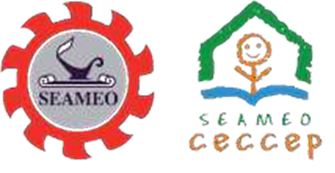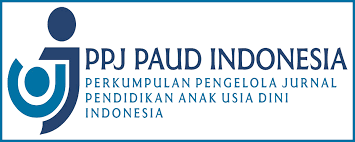PROFIL PERKEMBANGAN SOSIAL ANAK KELOMPOK B DALAM BERMAIN PERAN
DOI:
https://doi.org/10.33474/thufuli.v1i1.2778Abstract
Social development is one aspect of development that must be stimulated early. Based on observational data made regarding the daily lives of group B children at Ar-Rahman Kindergarten, Jombang, it appears that children are better able to socialize with peers or with people who are older than children from other institutions. One form of stimulus for social development in kindergarten, specifically for children aged 5-6 years (group B) kindergarten can be done through role playing.
This research is a research with descriptive quantitative research. Data analysis techniques use descriptive with percentage. The study was conducted in group B, TK Ar-Rahman, Jombang Regency with a sample of 56 children.
Based on the results of these studies, it can be concluded that the profile of social development of child B, TK Ar-Rahman Jombang, is in good category (3) on indicators: 1) able to support with friends; 2) purchase at game level; and 3) able to ask and answer questions. Each indicator, category (3) has the highest percentage. A total of 32 children (57.1%) worked together in role playing activities to become family members with only 1 (one) command. 34 children (60.7%) were able to obey 3 (two) rules of the game in role playing. 28 children (50%) were able to ask and answer questions while playing roles.References
Branch, S. G. (2011). Social and Role of play in social skills and intelligence of children. Procedia - Social and Behavioral Sciences, 30(1), 2272–2279. https://doi.org/10.1016/j.sbspro.2011.10.444
Brown, D. S. (1981). Role Playing Helps Develop Social Skills. Washington: WETA’s Educational. Retrieved from http://www.ldonline.org/article/10141/
Education, N. A. A. for E. (2000). Guidelines for Excellence Early Childhood Environmental Education Programs. Washington: North American Association for Environmental Education (NAAEE.
Kemendikbud. (2015). Peraturan Menteri Pendidikan dan Kebudayaan Republik Indonesia Nomor 146 Tahun 2014 Tentang Kurikulum 2013 PAUD. Jakarta: Kemendikbud.
Kid Sense Child Development. (2017). Social Skills: What are Social Skills?, 1(1), 1–7. Retrieved from https://childdevelopment.com.au/areas-of-concern/play-and-social-skills/social-skills/
Kilgour, P. W., Reynaud, D., Northcote, M. T., Shields, M., Kilgour, P., Reynaud, D., … Shields, M. (2015). Role-Playing as a Tool to Facilitate Learning , Self Reflection and Social Awareness in Teacher Education Role-Playing as a Tool to Facilitate Learning , Self Reflection and Social, 2(04), 8–20.
Lismanda, Y. F., Dewi, M. S., Anggraheni, I., Malang, U. I., Malang, U. I., & Malang, U. I. (2016). Media Elektronik dan Pengawasan Orang Tua Sebagai Pendidikan Anti Kekerasan AUD Dalam Perspektif Psikologi. Indonesian Journal of Islamic Early Childhood Education, 1(1), 1–8. Retrieved from http://journal.pps-pgra.org/index.php/Ijiece/article/view/5
Masitoh. (2012). Strategi Pembelajaran TK. Jakarta: Universitas Terbuka.
Rowell, P. (2010). The world is a child ’ s stage – dramatic play and children ’ s development, 2010(36), 16–18.
Stage, F. (2009). Learning , Playing and Interacting Learning. Runcorn: Crown Copyright. Retrieved from https://www.keap.org.uk/documents/LearningPlayingInteracting.pdf
Sujiono, B. (2005). Mencerdaskan Perilaku Anak Usia Dini. Jakarta: Elex Media Computindo.






